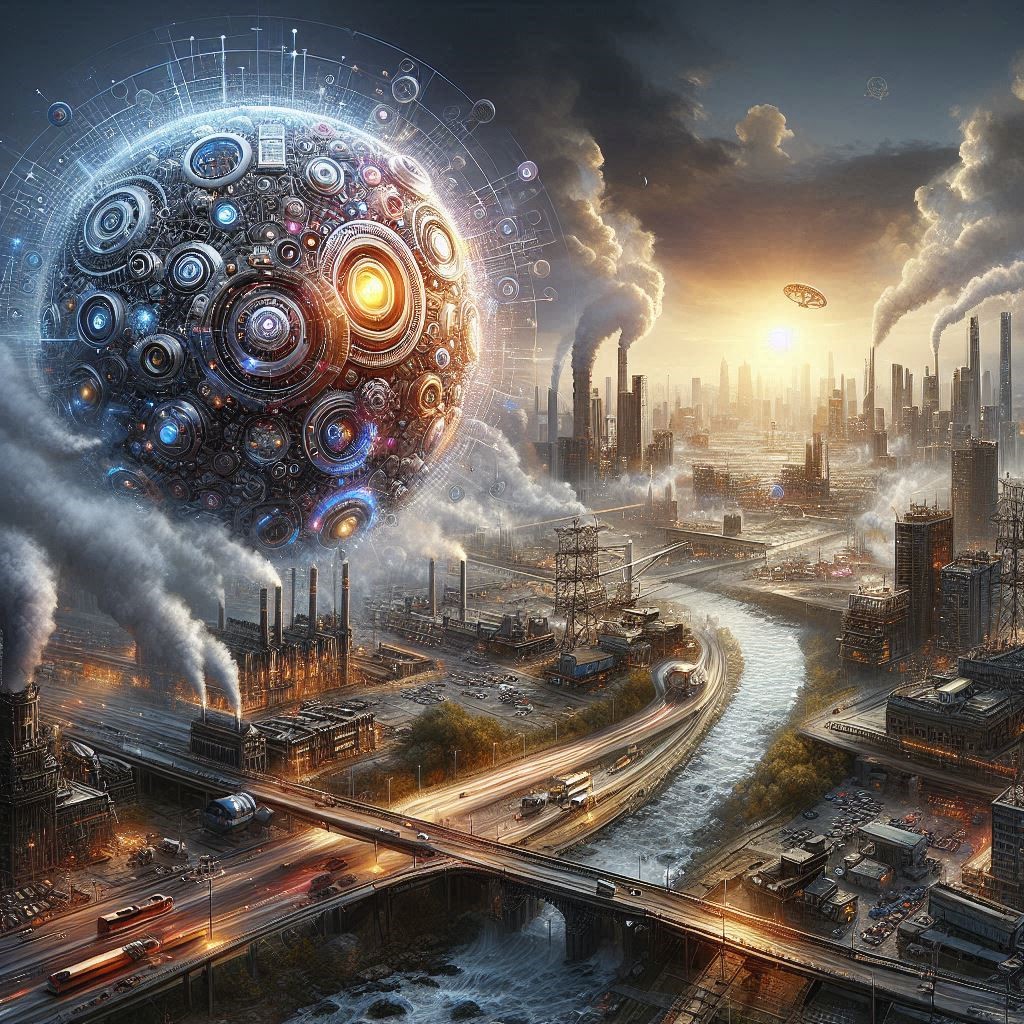Where has the Artificial Intelligence revolution gone?
How to complete the greatest of revolutions, without being overwhelmed by it.

A vision paper by Sarah Scully.
Artificial Intelligence (A.I) and technology are playing an increasingly important role in our lives today, with seemingly boundless potential to impact every aspect of life as we know it. The revolutionary impact of this innovative technology could perhaps be enormously positive or horribly catastrophic. However, in the short term, it can also be true that the changes induced by it may be much smaller than we expected, especially when considering its potential and media hype. In fact, outside the Silicon Valley bubble, the tangible benefits and early adoption enthusiasm for A.I powered solutions are harder to gauge and even more difficult to quantify.
By following the logic of American historian Melvin Kranzberg’s; Kranzberg’s Laws (‘laws of technology’), we can circumvent the value debate regarding A.I and focus on the measurable impact of the technology. With new A.I technologies such as autonomous cars, talking robots and chat-gpt being, unveiled in the past two years, the media attention on this digital upheaval is at an all time high. Yet, as per a recent article in The Economist, the economic and productivity indicators which measure the effectiveness of A.I have been shown to be muted if not negligible with ‘very little changing as a result of machines’. So what changes have we seen then?
On a positive note, the doomsday scenario of mass labor market layoffs due to A.I, feared by many including Kristalina Georgieva, head of the IMF has not occurred. We have seen the opposite with the employment rate in advanced countries at an all-time high (70.2%). Recent Eurostat figures indicate that in the European Union, we have hit a record for the number of job vacancies offered by companies, signaling strong economic growth across the block. Furthermore, as the graph below illustrates, the top ten occupations among these job vacancies are precisely those feared to have been replaced by intelligent robots (eg: secretarial work, accounting, software developers).

SOURCE: VISION ON EUROSTAT DATA
Perhaps A.I is then not so much a white-collar job killer, but another tool which can be harnessed to improve productivity in the workplace. If A.I is not affecting the labor market, then we must accredit its economic impact through the enhanced productivity it provides?. Well not exactly. According to a recent Goldman Sachs' report, which created a stock index of companies that should clearly benefit from the introduction of A.I, in particular "large language models' '(including book and film producers). Results found that the valuations of these companies that in theory should be reaping the rewards of artificial intelligence are actually performing worse. So what can explain this paradox? and above all, should we be concerned, given that this seems to rule out the cataclysms some feared?
Perhaps, the mystery behind a supposed missed revolution is not a new story nor is the fear of the countless horrors it can produce. Historically the industrial and digital revolutions before, have produced vastly different results than what one may have expected, at least in the short term. In 1989 one of the greatest economists in history, Robert Solow acknowledged this by saying that "computers are everywhere except in the productivity statistics." In developed countries with mature economies, diminishing marginal returns of technology overtime is a key factor in economic growth. Innovation takes time with the compounding effect of marginal gains being actualized in the medium to long term. The internet for example has improved our efficiency, no doubt but holds far less impact than the industrial revolution. Yet it is no doubt that it changes the very way humans transform information into knowledge, resulting in the end, not in an industrial revolution but a biological mutation. Could A.I do the same?
Despite this, there are parts of the world which showcase the transformative impact artificial intelligence is having on people's lives, contrary to what is happening in Europe and the United States. For example in India, an efficient universal assistance system has been built based on biometric recognition in a country that until fifteen years ago was almost entirely without identity cards. This system is powered by A.I and has allowed the public administration to make huge strides forward in a relatively short span of time. Furthermore in China, digital banks now process personal loan requests in seconds, where twenty years ago two-thirds of the population didn't even have a bank account. Even in Africa, the absence of vested interests in maintaining the status quo makes leaps in development processes possible using artificial intelligence in areas such as financial services, healthcare and procurement. As A.I at its core is a technology without allegiances, immune to human weakness of corruption and lust for power, its possibilities in politically volatile regions could be extraordinary.
The limitless possibilities, frightening analytical capacity of machines and economic opportunities which arise from artificial intelligence, have created an illusion of progress.True progress starts from a concrete problem and we have plenty of those even in developed countries, from the administration of justice to the strengthening of healthcare systems. Our new problem, how to efficiently, ethically and economically intergrate artifical intelligence solutions into our daily lives, perhaps will be the biggest challenge yet. Therefore for now, the hype and immediate transformative impact of the A.I revolution touted to solve a plethora of problems we face, has fizzled out. Leaving us to wonder, will it ever deliver on its boundless transformative potential or do we need to just wait, only time will tell.
References:
Melvin Kranzberg's Laws of Technology: Kranzberg, M. (1986). "Technology and History: 'Kranzberg's Laws'". Technology and Culture, 27(3), 544-560. Link
The Economist on AI and Employment: "Will smarter machines cause mass unemployment?" The Economist, June 25, 2016. Link
Eurostat. (2024). Job vacancy statistics: Job vacancies - a breakdown by economic activity. Link
OECD. (2023). The impact of artificial intelligence on productivity, distribution and growth. Link

